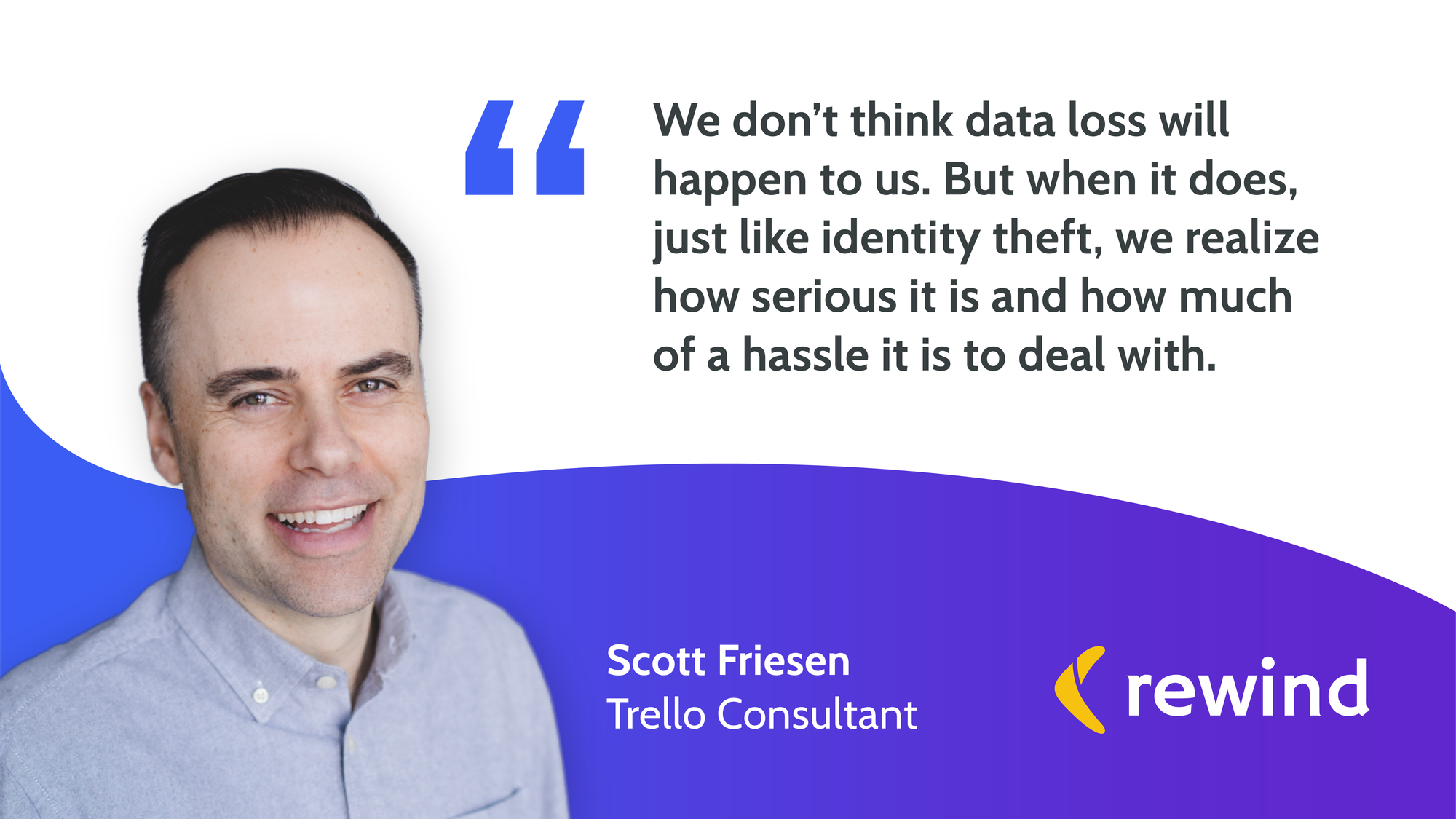How this productivity guru works smarter (and safer) on Trello
Scott Friesen isn’t busy – he’s productive. There’s a difference. This self-described ‘busyness killer’ helps individuals and teams simplify the way they work on Trello.
“I pride myself in helping people get the most out of their technology. I like to think of myself as bridging the gap between software and productivity,” explains Scott Friesen, founder of Simpletivity.
Like many new entrepreneurs, Friesen wasn’t exactly sure where his consultancy business was going to go or where the market was.
“Trello was a bit of a happy accident”, he laughs. His YouTube channel was a great marketing tool for him so he made a few videos about Trello after personal experience using the software. After users liked those videos, he made a few more. A few months down the road, “I became the Trello guy”, Friesen says.
“Trello consulting – I consider it a privilege. Because the tool is so flexible, I get to work with clients of many different sizes in many different industries,” he adds.
As someone who has consulted on thousands of boards, Friesen has seen a variety of creative solutions for backing up data on Trello. From screenshots to manual copies to JSON exports, there are numerous solutions Friesen describes as “clunky”.
For example, individually copying each board you need to back up takes up valuable space in your account, interferes with your navigation, introduces confusion, and adds another task on someone’s to-do list. “While it may not take very long, someone’s got to remember to make that copy”, Friesen explains.
“We put an awful lot of trust in our apps with almost everything being in the cloud,” says Friesen. “We often assume that software companies have our back and safety protocols are in place. We don’t think that data loss will happen to us. But when it does, just like identity theft, we realize how serious it is and how much of a hassle it is to deal with.”
Users are often surprised to learn that while Trello does back up the data stored on it, those backups are platform-wide and cannot be used to restore an individual account. This is known as the Shared Responsibility Model because both the platform and the users share the responsibility of data storage and security. “With popular software like Trello, you are one in millions of accounts. If your data gets corrupted, your chances of getting it back or getting it fixed in short order may be limited or non-existent,” adds Friesen. Trello backs up its platform – not your account. To restore individual account data, you need a complete backup of that account.
While Trello has good security protocols in place, no service can guarantee 100% uptime. And even if it could, no software can prevent the oldest and most common “bug”: human error.
“Sometimes you’ll have members of a team who are hesitant to do things, or aren’t doing things they should, because they don’t want to make a mistake,” Friesen explains.
Especially with the proliferation of Power-Ups and automations like Butler, “you’ve got things happening in the background, depending on what the user is doing. If everyone isn’t on the same page, that can lead to confusion – coupled with lots of boards, each with a few hundred cards – well, by the time you’ve figured out something is wrong, you have a big headache on your hands”, warns Friesen.
That’s why Friesen recommends a secure data backup. “Being able to turn back the clock like that is huge”, he adds.
Plus, data faces threats that aren’t so benign. With a data backup, “businesses can also prevent the possibility of disgruntled employees doing something revengeful to a company’s boards”, explains Friesen. If a business fell victim to malicious code, like ransomware, an up-to-date data backup would allow it to avoid data loss, reduce downtime, and get back to work quickly.
Unfortunately, Friesen understands the dangers of data loss for small businesses all too well. “If your CRM, project workflow, content calendar – whatever – is stored online and lost, what are you going to do?”
“Using Rewind Backups will give any business invested in Trello the assurance that nothing is broken forever.”
Rewind Backups for Trello allows users to back up and restore their boards, cards, lists, and attachments. After syncing your account, your data is automatically backed up to the Rewind Vault daily. Should something go wrong, you can restore your Trello account with just a few clicks. It’s a set-it-and-forget-it solution to data loss caused by buggy Power-Ups, software glitches, and good old-fashioned human error. Go forth, and collaborate with confidence!
Protect your Trello data now.



